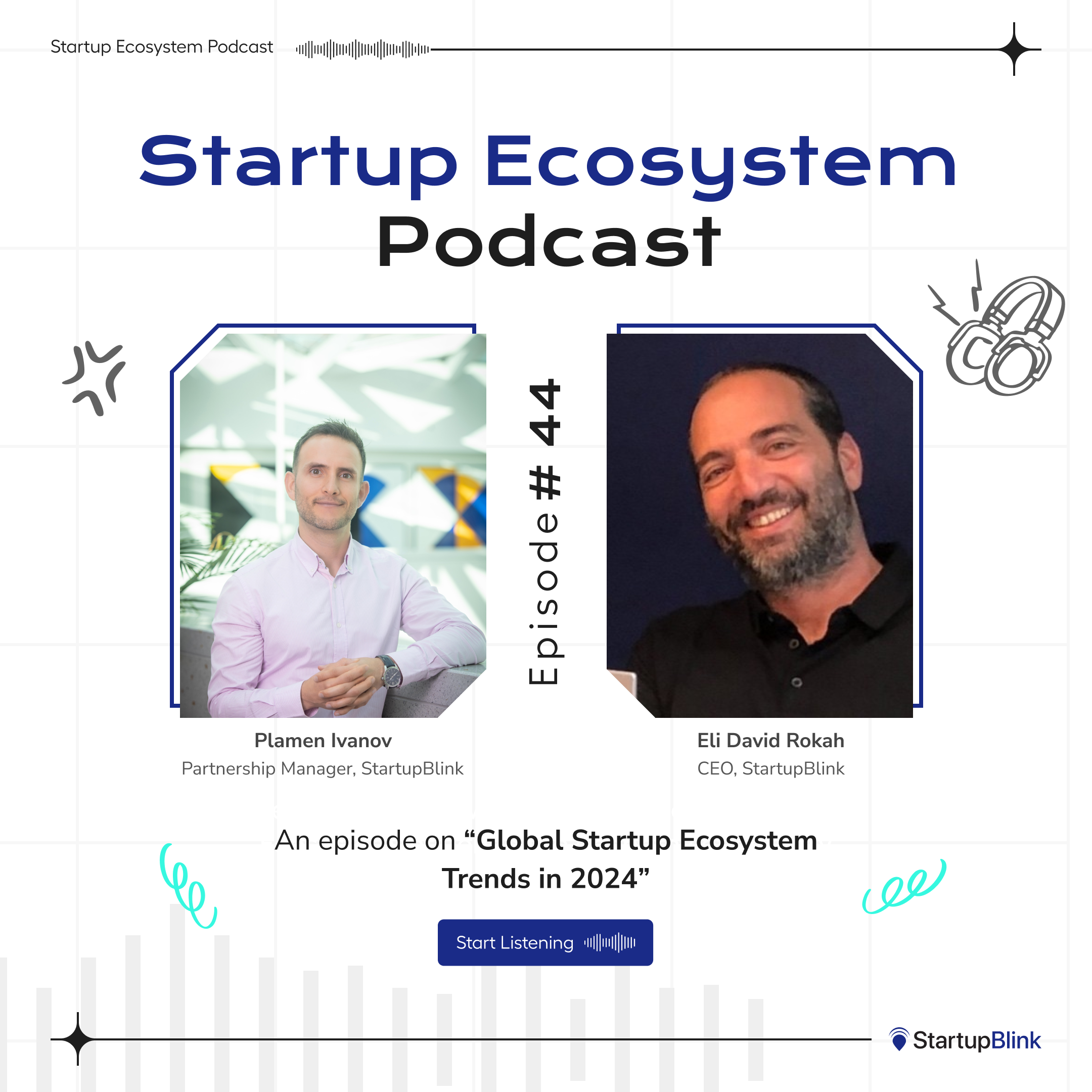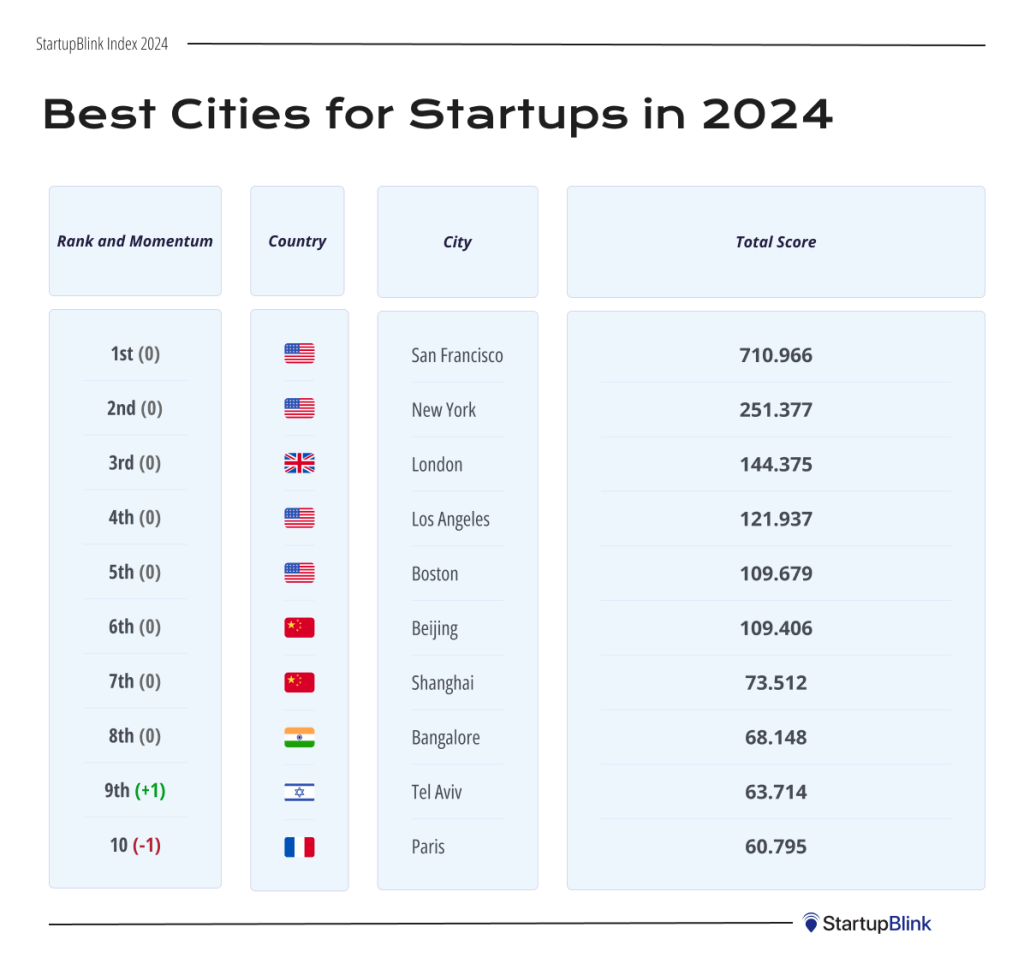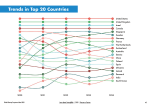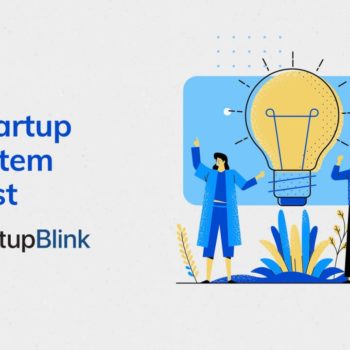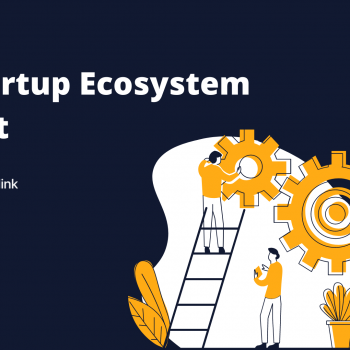Join Eli David Rokah, CEO of StartupBlink, and Plamen Ivanov, Partnerships Manager, as they reveal the latest findings from the 2024 Global Startup Ecosystem Index. Released on May 30, 2024, this comprehensive report ranks 1,240 cities and 119 countries, highlighting the latest global startup ecosystem trends. Partnered with over 100 government entities and data powerhouses like Crunchbase, Semrush, and Statista, this episode provides an in-depth look at the global startup ecosystem trends. Tune into the episode and discover which locations are leading the charge in innovation and growth.
Get a head’s up on our next podcast episode — Subscribe on Apple Podcast, or Spotify!
Where are the top 5 countries for startups in the world?
The United States continues to dominate the global startup economy, reaffirming its position as the leading startup nation. Following the U.S., the United Kingdom and Israel remain in the 2nd and 3rd spots, with the gap between them narrowing, highlighting Israel’s rapid advancements. Canada retains the 4th spot, where it has been since 2020, but has fallen further behind the top three. Last year, the gap from Israel was over 25%; this year, it has grown to over 30%. Meanwhile, Singapore is now close to overtaking Canada for 4th place. Singapore’s rise into the global top five showcases the impact of effective government policies, turning its small population into an advantage.
Several other countries exhibit noteworthy movements in their rankings according to the Global Startup Ecosystem Index 2024. Germany and France remain strong contenders, with Switzerland re-entering the top ten. Conversely, Australia’s decline from the top ten signals a need for revitalizing its startup ecosystem, though it still ranks 2nd worldwide in business environment scores.
Where are the top 5 cities in the world for startups?
In the city rankings, San Francisco with the powerful hub of Silicon Valley remains the leader, especially in AI. New York, ranked 2nd, is the only city that could potentially challenge San Francisco’s supremacy, although this seems unlikely in the near future. London, Los Angeles, Boston, and Beijing form a third tier in the global startup ecosystem, maintaining stable positions. An interesting shift has occurred between Tel Aviv and Paris: Tel Aviv has surpassed Paris, which now faces a higher risk of further decline due to increased competition.
De-Globalization of Startup Ecosystems
A macro trend identified in the Global Startup Ecosystem Index 2024 is the shift towards regionalization and de-globalization. Mindsets are shifting as ecosystem stakeholders become more aware of geopolitical risks. Combined with protectionism and a subsidy race from historically open economies such as the US, reflected in strategic industries such as climate, defensetech, spacetech, and semiconductors, this deglobalization trend is likely to intensify, potentially ending the global economic order suddenly. The global startup ecosystem is becoming more fragmented, with regional leaders such as Singapore in Southeast Asia and Dubai in the Middle East emerging as key hubs of innovation and growth. However, we will conclude with a word of caution for regional strategies. In order to build an outstanding startup economy, cities that have managed to make the jump to becoming a regional hub should not forsake a long term global strategy, since this is where most of the unlocked economic potential lies.
The Impact of Government Policies on the Startup Economy
Effective government policies are key for creating a conducive environment for startups. Pro-business policies, lower taxes, and the removal of capital gains attract and retain startups, fostering economic development. During the episode, Eli highlights that successful ecosystems actively promote their achievements, drawing global attention and fostering a thriving startup culture.
Bootstrapping for Startups is Back on the Table
The global economic environment significantly impacts the global startup economy. High inflation and interest rates create a challenging investment climate, leading to a funding winter. Additionally, exit opportunities for startups are now more restricted as government authorities are blocking M&A deals, as seen in examples like Figma. This situation encourages bootstrapping and self-funding, potentially leading to more sustainable startup growth.
Rising Startup Industries: AI Boom, Healthtech Growth, and Renewed Interest in Blockchain
The AI boom revitalizes several ecosystems, particularly San Francisco. Healthtech is also on the rise, with notable advancements in obesity treatment and neurological research. Additionally, there is renewed interest in blockchain technology, focusing on building robust solutions rather than speculative gains.
How Does StartupBlink Rank Startup Ecosystems?
The Global Startup Ecosystem Index 2024 evaluates dozens of parameters, from funding amounts to the impact of unicorns, to assess startup ecosystem success. Since 2017, this project has used a large set of data and collaborated with global partners such as Crunchbase, Semrush, and Statista, involving contributions from over 100 government ecosystem developers worldwide.
Conclusion
The Global Startup Ecosystem Index 2024 offers a deep analysis of the global startup ecosystem. With interesting shifts happening, emerging industries, and changing macroeconomic environment, the report aims to guide startups, investors, and policymakers to make informed decisions.
Looking ahead, StartupBlink focuses on enhancing its technological platform to provide more accessible and accurate data. Eli highlights the importance of making information more consumable, aiding startups in making informed decisions about their locations and strategies. Future initiatives include releasing more detailed insights and rankings, improving platform usability, and offering tools for better decision-making in the startup ecosystem.
